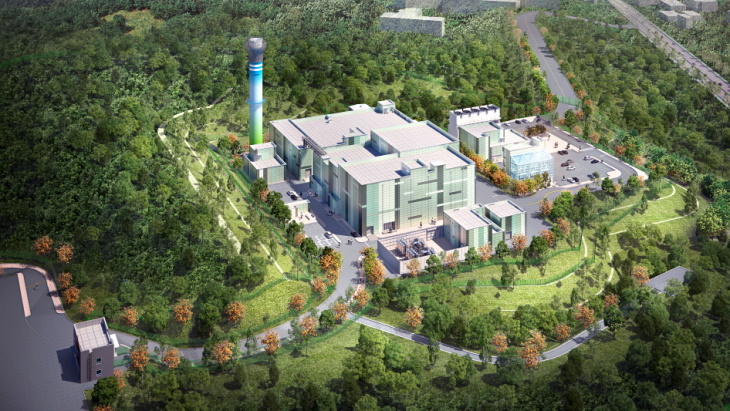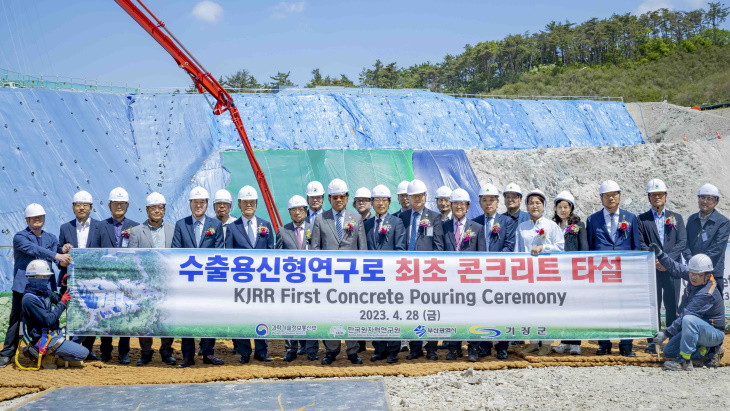The first concrete has been poured for the Kijang Research Reactor (KJRR) at the Radiology Science Industrial Complex in Gijang-gun, Busan, the Korea Atomic Energy Research Institute (KAERI) announced.

How the KJRR facility could appear once completed (Image: KAERI)
A ceremony to mark the start of construction of the 15 MWt open-tank-in-pool type reactor was held on 28 April. The event was attended by about 150 people from construction companies Daewoo E&C, Hyundai E&C and GS E&C, as well as the construction project management team.
The new research reactor aims to achieve self-sufficiency as well as exports of major medical and industrial radioactive isotopes that are currently dependent on imports. These includes molybdenum-99, iodine-131 mIBG, iodine-125 and iridium-192. KAERI said it plans to supply more than 15% of the global isotope market. In addition, the reactor will be a demonstration for the export of similar research reactors.
The project - with a total cost of KRW765 billion (USD574 million) - was launched in April 2012. A construction permit for the reactor was granted by the Nuclear Safety and Security Commission (NSSC) in May 2019, with the selection of the construction consortium in April 2022. Groundbreaking and excavation work began the following month.

Representatives mark the start of construction (Image: KAERI)
Completion of the facility and trial operation is scheduled to begin in 2026. KAERI said it expects to obtain operating permits from the NSSC and begin full operation of the facility in 2027.
Speaking at the ceremony to make the start of construction of KJRR, KAERI President Joo Han-kyu said: "If nuclear energy has been leading the country's economic growth silently, now we will move closer to people's health and people's lives with radiation and isotopes".